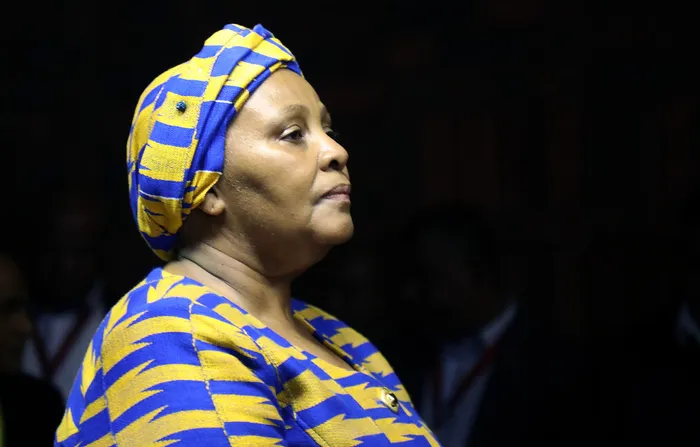Perennial failure to soften rough edges of some leaders

Former Speaker of Parliament Nosiviwe Mapisa Nqakula appears at the Pretoria Magistrate's Court. When leaders hold positions in vital democratic institutions such as Parliament, the judiciary, and the Office of the Public Protector, the consequences of their conduct can be far-reaching and damaging to the fabric of democracy, the writer says. – Picture: Oupa Mokoena / Independent Newspapers
By Sethulego Matebesi
In an age of political scepticism, the spate of scandals and impeachments against leaders of public institutions have been subject to extensive debates, perhaps due to the detrimental effect on institutional integrity.
The recent scandal around the former Speaker of the National Assembly, Nosiviwe Mapisa-Nqakula, has added to an expanding list of leaders in the judiciary and Chapter 9 institutions who have faced impeachments and scandal.
When leaders hold positions in vital democratic institutions such as Parliament, the judiciary, and the Office of the Public Protector, the consequences of their conduct can be far-reaching and damaging to the fabric of democracy.
But how did we arrive here?
As South Africa ushered in democratic institutions, the public office took on a different significance for some leaders. For many, pursuing public good and enhancing civil society became their primary goal. They ensured upholding the principles of democracy, safeguarding citizens’ rights, and ensuring the accountability of government officials.
Others, though, treated public office as an investment of their time, giving them the right to harvest their return at any given time. These are the leaders with rough edges that democracy has failed to soften. They are supposed to be beyond reproach and lead in instilling a culture of accountability among their subordinates.
However, the scandals around these leaders have disproportionately moved the pendulum of trust towards distrust of government and democratic institutions.
Among the most prevalent questions in the public domain, each time a high-ranking official is surrounded by controversy is how it is possible for such acts that tarnish the reputation of democratic institutions to continue unabated.
More concerning is when unethical leaders manipulate the legislative process for personal gain, stifle dissent, and prioritise their interests over the needs of the people they serve. This is a bitter pill for the public to swallow.
Democratic institutions are meant to uphold the rule of law, ensure accountability, and protect the rights of citizens. An antithesis to this is when leaders facing disciplinary processes or investigations by law enforcement units blame invisible “enemies” or label it as a political witch-hunt. This undermines public trust in the system and erodes the foundations of democracy.
Whether by accident or design, such utterances by public leaders lead to temporary relief for them but more profound damage to the public perceptions of democratic institutions. Where does it leave us?
The government’s greater emphasis on accountability has been a welcome development in South Africa over the last three decades. Still, unethical tendencies in public institutions persist.
Beyond voting, citizens have to ensure that they hold public leaders accountable. Several studies have shown that corruption, fraud, and maladministration arise when citizens are not interested in enforcing accountability.
Such civil apathy and unethical leadership betray the sacrifices of struggle heroes and those who fought for freedom in South Africa. This is a betrayal of the values of struggle heroes, but it also undermines the progress that has been made towards building a just and inclusive society.
South Africans will have another opportunity to elect public representatives next month. While citizens do not directly elect leaders who occupy public office, there is a tendency to “vote and forget”.
The latter refers to citizens who will only turn up to vote on election day and forget that the active participation of citizens in democratic processes, including holding leaders accountable, is essential in sustaining and strengthening democracy.
Similarly, while we can blame the government for appointing leaders known for being unethical, we are bound to have similar experiences of public leaders who face serious allegations that bring public institutions into disrepute.
It is, therefore, essential that those in positions of power who have been upholding the integrity of their institutions continue to honour the legacy of those who fought for democracy by upholding the values of integrity, transparency, and accountability. By doing so, they can ensure that the sacrifices for freedom and democracy are not in vain.
Above all, to realise the value of ethical leadership requires an electorate that places mounting scrutiny on the actions and conduct of leaders.
Prof Sethulego Matebesi is Associate Professor and Head of the Department of Sociology at the University of the Free State
Related Topics: